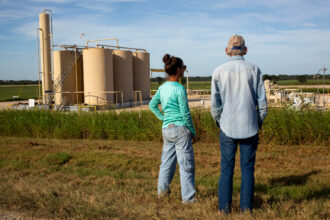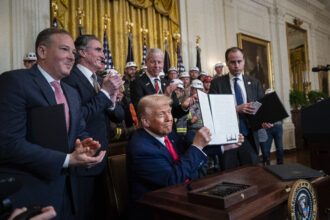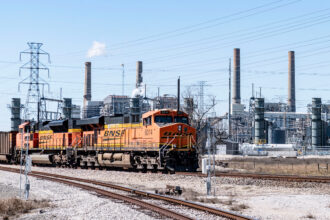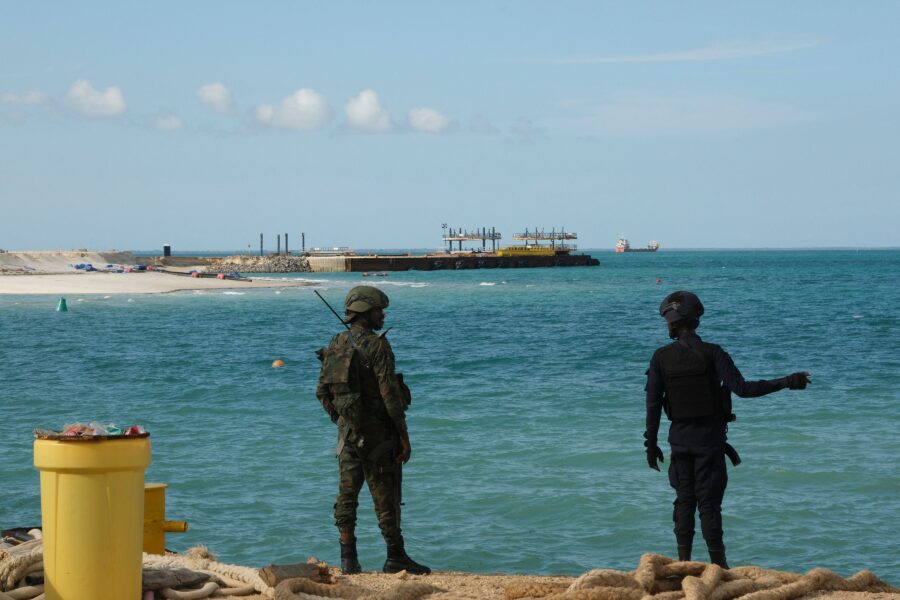OMAHA, Nebraska—TransCanada Corp has offered a $100 million performance bond and other oil spill protection measures to Nebraska legislators in an attempt to reduce opposition to the company’s proposed $7 billion Keystone XL oil pipeline.
State lawmakers want TransCanada to move the pipeline route from Nebraska’s Sandhills region, which sits atop a massive aquifer from which a large portion of the agriculture-heavy central United States gets its water.
In a letter to the speaker of the legislature on Tuesday, TransCanada executive Alex Pourbaix said the company cannot make changes to the right-of-way so late in the review process, but is prepared to offer a host of other protections for the environmentally sensitive area.
TransCanada would put up a $100 million performance bond it would make available to the state if the company does not clean up a spill in the Sandhills area.
Among other measures, it would build a concrete containment structure at a pump station to stop any oil from mixing with surface water in the event of a spill, as well as install a pipe coating made of concrete or other materials in areas where the water table is close to the surface.
“I believe they should help alleviate any remaining concerns about the safety of the approved route of the pipeline,” Pourbaix wrote in the letter to the speaker, Senator Mike Flood.
The company has yet to receive a response, TransCanada spokesman Shawn Howard said.
The risk of oil spills in the area of the aquifer, called the Ogallala, is one of several points of opposition to the Keystone XL pipeline, which would move up to 700,000 barrels a day of oil sands-derived crude to Texas from northern Alberta, Canada.
The U.S. State Department is expected to rule by the end of this year on whether TransCanada can build the controversial line, which the company has said will create U.S. jobs and improve energy security.
Howard said the concessions are in response to concerns raised at a meeting with Nebraska lawmakers last week.
“We had made a commitment to the speaker and some of the state senators that were involved that we would consider some of the requests they made and see what we may be able to do to further enhance the safety of the pipeline, especially in the Sandhills region,” Howard said.
“We spent the last week having a look at this and this is what we were able to commit to in terms of enhancements that are above and beyond what we’ve already done and agreed to.”
TransCanada has said the pipeline would be the most advanced and safest ever built.
Still, in the letter, Pourbaix offered to conduct water well testing for landowners within 300 feet of the proposed right-of-way in the Sandhills region and locate oil spill equipment and personnel there as well.
(Writing by Jeffrey Jones; Editing by David Gregorio and Bob Burgdorfer)
About This Story
Perhaps you noticed: This story, like all the news we publish, is free to read. That’s because Inside Climate News is a 501c3 nonprofit organization. We do not charge a subscription fee, lock our news behind a paywall, or clutter our website with ads. We make our news on climate and the environment freely available to you and anyone who wants it.
That’s not all. We also share our news for free with scores of other media organizations around the country. Many of them can’t afford to do environmental journalism of their own. We’ve built bureaus from coast to coast to report local stories, collaborate with local newsrooms and co-publish articles so that this vital work is shared as widely as possible.
Two of us launched ICN in 2007. Six years later we earned a Pulitzer Prize for National Reporting, and now we run the oldest and largest dedicated climate newsroom in the nation. We tell the story in all its complexity. We hold polluters accountable. We expose environmental injustice. We debunk misinformation. We scrutinize solutions and inspire action.
Donations from readers like you fund every aspect of what we do. If you don’t already, will you support our ongoing work, our reporting on the biggest crisis facing our planet, and help us reach even more readers in more places?
Please take a moment to make a tax-deductible donation. Every one of them makes a difference.
Thank you,












